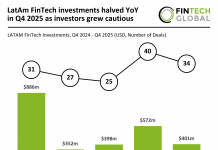Chargeback fraud, an ever-present issue affecting businesses of all kinds and sizes, results in losses totalling to billions annually. The surge in eCommerce has coincided with an increase in such fraudulent activities, and this alarming trend is expected to continue.
RegTech company Alessa recently explored what chargeback fraud is and how companies can prevent it.
Businesses aren’t helpless in this situation, however. They can take proactive steps to safeguard themselves from chargeback fraud. The key is in comprehending the nature of the fraud, its workings, and how to detect and counteract it. This article explores the concept of chargeback fraud, shares some signs to look out for, and offers tips to prevent such fraudulent activities.
A chargeback refers to a customer’s disputed charge, leading to the return of payment. This typically happens when customers spot an unfamiliar charge on their bank or credit card statement, dispute it successfully, and have the amount returned to their account. Chargebacks arise from both legitimate claims—where customers have genuinely fallen victim to fraud—and illegitimate ones, where customers falsely claim non-receipt of goods or denial of placing the order.
While chargebacks may seem similar to refunds, key differences exist. The most significant of these is that the customer retrieves the money directly from the bank or card company, bypassing the merchant altogether. Chargebacks can be more detrimental to merchants than refunds due to their high processing times, costs, and the potential for damaging reputational and regulatory repercussions.
Chargeback fraud, or the abuse of the chargeback process, is a type of consumer fraud. This typically happens when a customer falsely attempts to obtain a refund via their bank or card issuer, rather than directly from the merchant, after receiving the goods or services. While sometimes these can result from a misunderstanding or forgetfulness, intentional chargeback fraud is illegal and can have significant ramifications.
The impact of chargeback fraud on businesses can be severe. Contending against such fraud can be time-consuming and expensive. Often, due to the intricacy of the process, many merchants opt to pay out the chargeback, forgoing the lengthy dispute process. Usually, banks side with the customer and process a chargeback against the merchant, who then has to bear the financial implications.
While businesses of all sizes can be affected, small and medium-sized enterprises often feel the brunt of these fraudulent activities. However, larger businesses are not exempt, with the risk of large-scale chargeback fraud looming. Apart from financial losses, operational costs, reputational damage, increased fraud prevention costs, and penalties from payment processors or card issuers are other detrimental impacts.
Chargeback fraud can affect any business that processes credit card transactions, irrespective of size or industry. Particularly vulnerable businesses include online retailers and service providers, subscription-based businesses, and those selling high-value products or services.
To mitigate the risk of chargeback fraud, businesses need to recognise potential red flags. These include larger than expected orders, different cards with the same shipping address, and multiple cards used for a single order, among others.
While preventing chargeback fraud is challenging, there are measures businesses can implement. These include training staff on the chargeback process, improving customer service, providing clear return and refund policies, ensuring solid purchase and return processes, managing chargebacks effectively, and utilising fraud detection and prevention tools. For instance, Alessa offers robust fraud management solutions that use advanced analytics to analyse transaction data and flag suspicious activity.
Despite being instituted to protect consumers against fraud, the chargeback process can be abused. Chargeback fraud, an increasingly costly issue, is escalating due to the rise in digital payments. However, by deploying the right tools and implementing strategic measures, businesses can guard themselves effectively against this pervasive threat.
Read the full report here.
Keep up with all the latest FinTech news here
Copyright © 2023 FinTech Global











